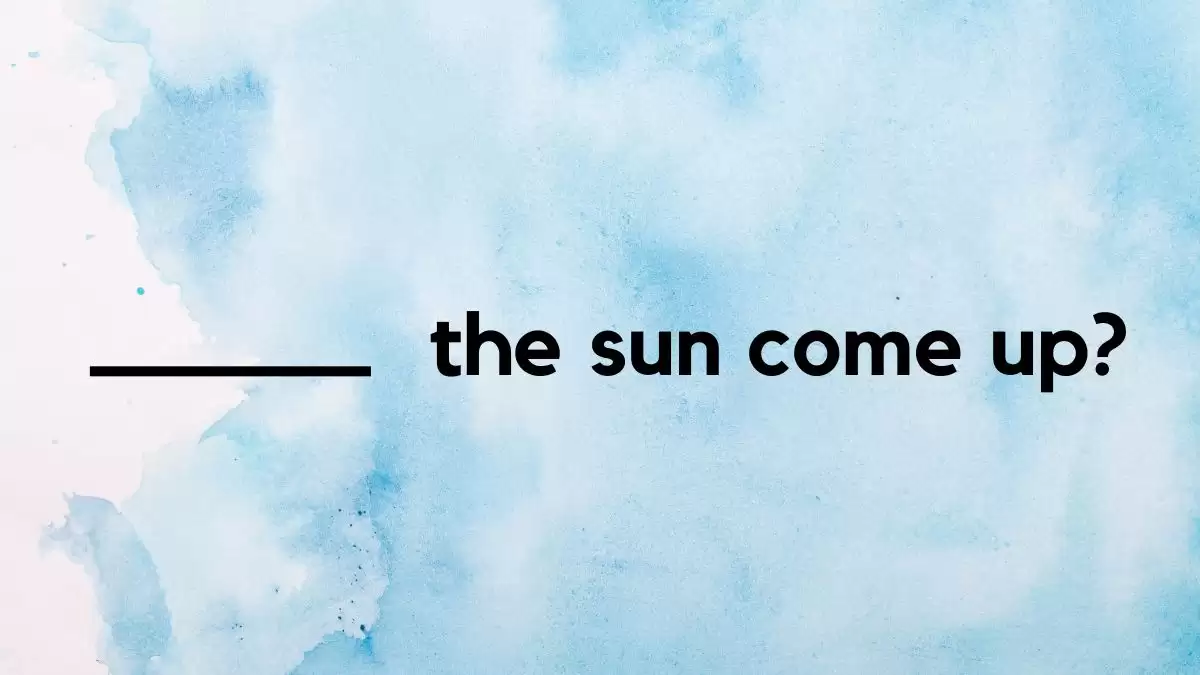Can you solve the three grammar questions in this puzzle?
Explore the world of grammar puzzles. These puzzles engage readers by presenting situations that require you to use your grammar skills and creative thinking. They keep your mind active and may help reduce stress. There are many different grammar challenges to enjoy, including the ones that are coming next. This challenge is a little tricky and is for those who are really good at grammar and notice the little things. When you master this type of puzzle, you get more than just fun, it provides you with skills that are useful in many aspects of life.
- Observation Brain Test: If you have 50/50 vision find the word Loan in 15 Seconds
- Brain Teaser: Can You Solve 9+3×6=?
- Observation Brain Challenge: If you have Hawk Eyes Find the Letter Y in 15 Secs
- Brain Teaser IQ Test: What is 2+2-2÷2=?
- Viral Matchstick Puzzle – Correct the Equation 1-4=3 by Moving just 1 Stick
Although the puzzle may seem difficult at first, your goal is to find a solution that fully follows the rules of grammar and uncover the secrets of the puzzle. The following sections explain this syntax dilemma in detail and show you how to solve it.
You are watching: Can You Solve The Three Grammar Questions in This Puzzle?
1.___Has the sun risen?
“Is the sun out yet?” Use the word “has” as part of the present perfect tense. In English, the present perfect tense is used to connect the past and present. It is usually formed by combining “has” or “have” with the past participle of the verb. In this case, “has” is used because the sentence is in the third person singular and refers to the sun. The word “come” is the past participle of the verb “come”. So, “Did the sun come out?” means that the action of the sun rising has already happened in the past, but is relevant to the present, which is why the present perfect tense is used.

See more : 5-8=0 Move 1 Matchstick and Correct this Equation Within 20 Seconds | Brain Teaser Matchstick Puzzle
2. Did they go to ___ store?
The phrase “Did they go to the store?” Use “to” as part of an infinitive verb phrase. In this question, “to the store” is used as an adverbial phrase, specifying the destination of the action. The word “have” is an auxiliary verb that forms the present perfect tense, connecting the past and present. So, “Did they go to the store?” asks whether the action of going to the store was completed in the recent past and whether this has an impact now. The use of “to” in this sentence is part of how English grammar structures actions and their destinations. It helps specify where they went and shows that the action is relevant to the current moment.

3.He ___ had breakfast
The word “already” in the sentence “He has had breakfast” is used to indicate that the action of eating breakfast occurred in the recent past. In English, the word “has” is a form of the auxiliary verb “have” and when combined with “already” it creates the present perfect tense. This tense connects the past to the present, emphasizing that the action has been completed before.
See more : Brain Teaser Emoji Puzzles: Can You Guess the Cartoon by the Emoji?
So when we say “He had eaten breakfast” we are emphasizing the fact that breakfast was eaten earlier in the day and that this information is relevant to the current moment. The use of “already” emphasizes the timeliness of the action, indicating that it happened not long ago. Simply put, it expresses that he had breakfast recently, which is why “already” is used in the sentence.

Find the result of 7654 ÷ 58 + 146 x 5 – 2124 ÷ 47=?
To find the solution, remember the order of operations. Division and multiplication proceed from left to right: 7654 ÷ 58 equals 132, and 2124 ÷ 47 equals 45. The equation becomes 132 + 146 x 5 – 45. Now, perform multiplication and addition/subtraction from left to right: 146 x 5 equals 730, and 132 + 730 equals 862. Therefore, the solution is 862.
Looking for mental stimulation? NEWSTARS Education has a collection of puzzles designed for quick challenges and in-depth exploration. Find the perfect brainteaser to suit your time and mood!
trend
Find the value of 7219 ÷ 53 + 135 x 6 – 2285 ÷ 51=?
In this problem, order of operations applies. Division and multiplication proceed from left to right: 7219 ÷ 53 equals 136, and 2285 ÷ 51 equals 45. The equation becomes 136 + 135 x 6 – 45. Next, multiply, add and subtract from left to right: 135 x 6 equals 810, and 136 + 810 equals 946. Therefore, the answer is 946.
Disclaimer: The above information is for general information purposes only. All information on this website is provided in good faith, but we make no representations or warranties, express or implied, as to the accuracy, adequacy, validity, reliability, availability or completeness of any information on this website.
Source: https://truongnguyenbinhkhiem.edu.vn
Category: Brain Teaser
